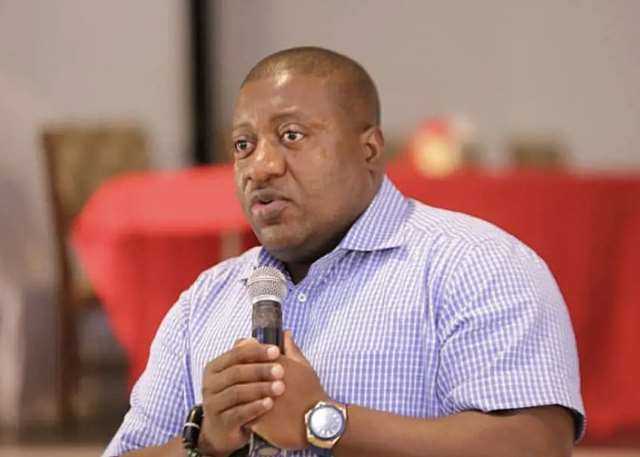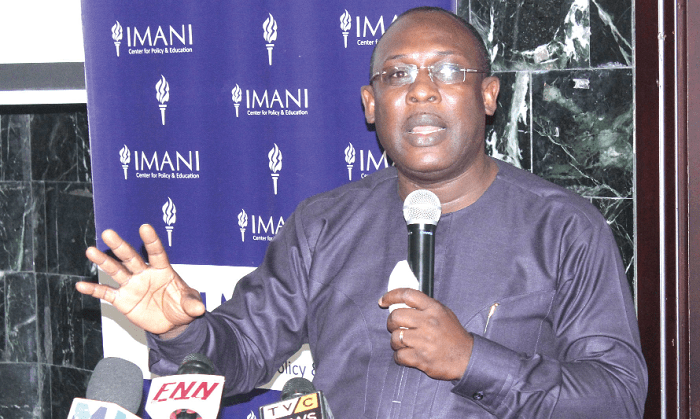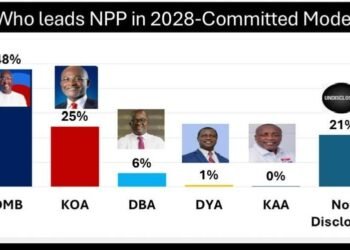Henry Nana Boakye, the NPP’s National Organizer, has strongly condemned the Mahama administration’s decision to terminate the appointments of public sector employees recruited after December 7, 2024.
He argued that these dismissals violate due process and disregard the rights of hardworking Ghanaian youth who lawfully secured their positions.
According to him, there is no legal basis for the President’s actions under the guise of “good governance practices and principles.”
“It has been more than a month since President John Mahama took the Presidential oath to ‘at all times preserve, protect and defend the Constitution of Ghana’; and so where from this attempt to terminate legitimate and lawful appointments of hard-working Ghanaians…who have complied with due process of law to secure their appointments”.
Henry Nana Boakye

Boakye questioned whether the President had so quickly forgotten his oath to uphold Ghana’s laws, emphasizing that leadership comes with the responsibility to respect and adhere to constitutional principles.
He stressed that the President must fulfill his obligations under the law rather than manipulate them for personal or political advantage.
Vowing to challenge the decision in court, Boakye declared, “Notice is hereby served that I shall head to the Court to defend these young people and remind the President that his oath was to defend the Constitution and not to abuse it.”
He indicated that he had enlisted the services of legal practitioners Nana Baffour Awuah Esq. and Nicholas Lenin Anane Agyei Esq. to challenge the dismissals.
‘Political Hypocrisy’ at Play In Public Sector
Moreover, the controversy has sparked broader discussions about political transitions and the fate of public sector employees hired under outgoing administrations.
Drawing comparisons with the past, NPP communicator Kofi Ofosu Nkansah highlighted a similar situation in January 2017 when the then-SSNIT management, under Ernest Thompson, recruited over 400 new staff just before exiting office.

Those employees, he noted, retained their jobs under the incoming NPP government.
“In the same vein, I won’t support a new NDC SSNIT Management terminating the appointments of new staff who got appointment letters in mid-December 2024 after attending interviews in August 2024”.
Kofi Ofosu Nkansah
He further emphasized that recruitment into the public sector is a complex and time-consuming process that spans several months rather than just a few days.
This, he argued, serves as clear evidence that the appointments were driven by established procedures rather than political considerations.
A Different Perspective
Not everyone, however, agrees with the NPP’s stance. Kofi Bentil, Vice President of IMANI Africa, sees the situation differently.
While he sympathized with the affected workers, he pointed fingers at the previous government for making the appointments so close to their exit.

“I hear those ‘employed’ after Dec 7 have been sacked!? Kafra, but blame those whose warped minds packed you in when they knew they were leaving office!!”
Kofi Bentil
He further criticized the practice of outgoing governments making last-minute appointments, stating, “It’s wrong!! When you lose elections, don’t do stuff for others to sort out!! Especially after a concession.”
Meanwhile, the issue raises both legal and ethical concerns: Should a new administration have the power to revoke last-minute appointments, or should public sector jobs be protected from political transitions?
Boakye and Nkansah argue for fairness and continuity in governance, while Bentil warns against post-election appointments that entrench political loyalists.
Legal experts believe the courts must decide whether such dismissals are constitutional. A ruling in favor of affected employees could set a precedent for due process, while upholding the dismissals may reinforce skepticism toward last-minute appointments.
Beyond the legal battle, the case highlights the instability of Ghana’s public sector employment.
Many young graduates see government jobs as a path to financial security, yet each election cycle brings uncertainty.
Governance experts propose reforms such as restricting appointments before elections or establishing a bipartisan commission to ensure transparency.
For now, dismissed employees and their families await clarity as the opposition prepares for a legal showdown—one that could shape the future of public sector employment in Ghana.























